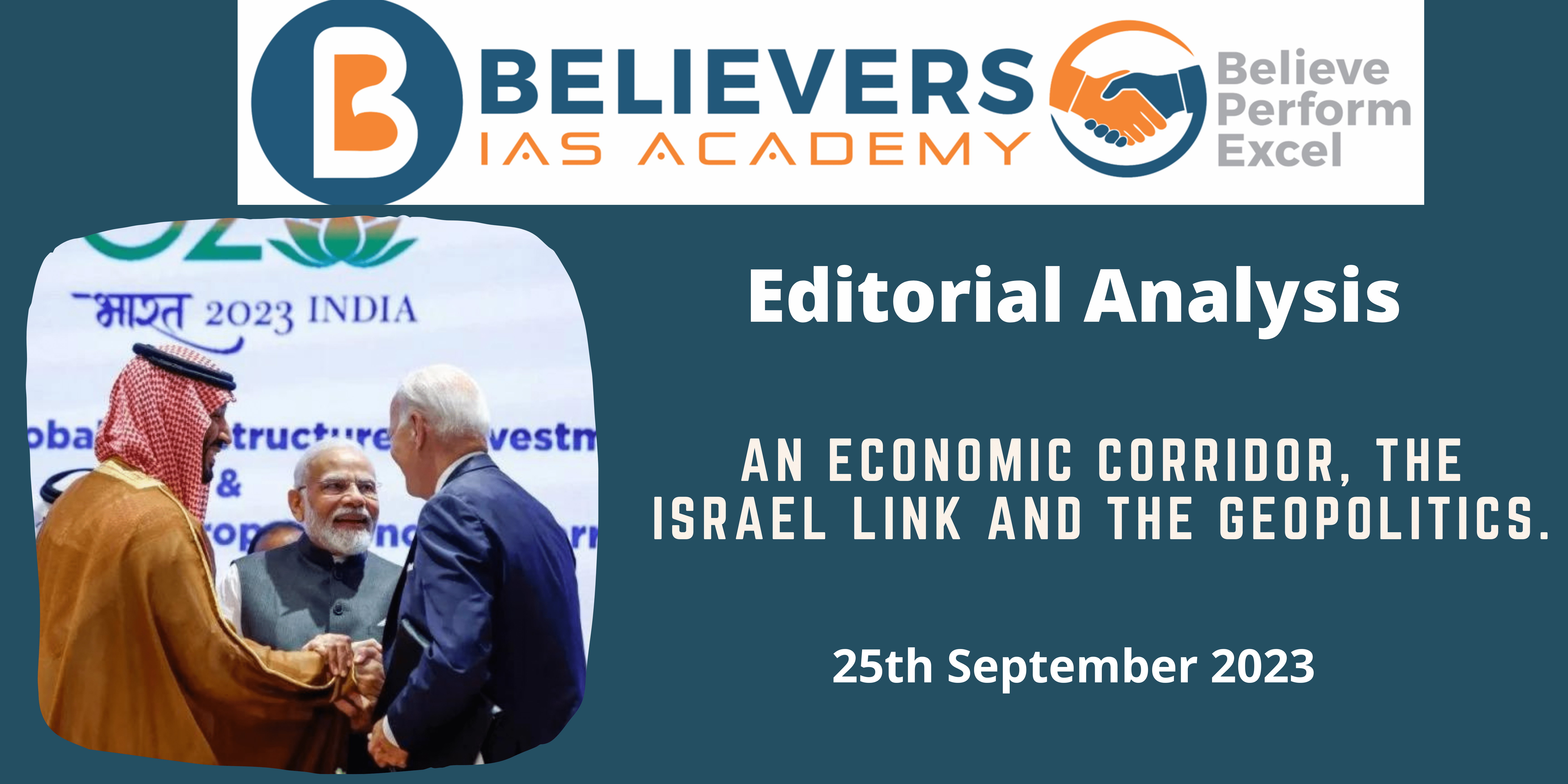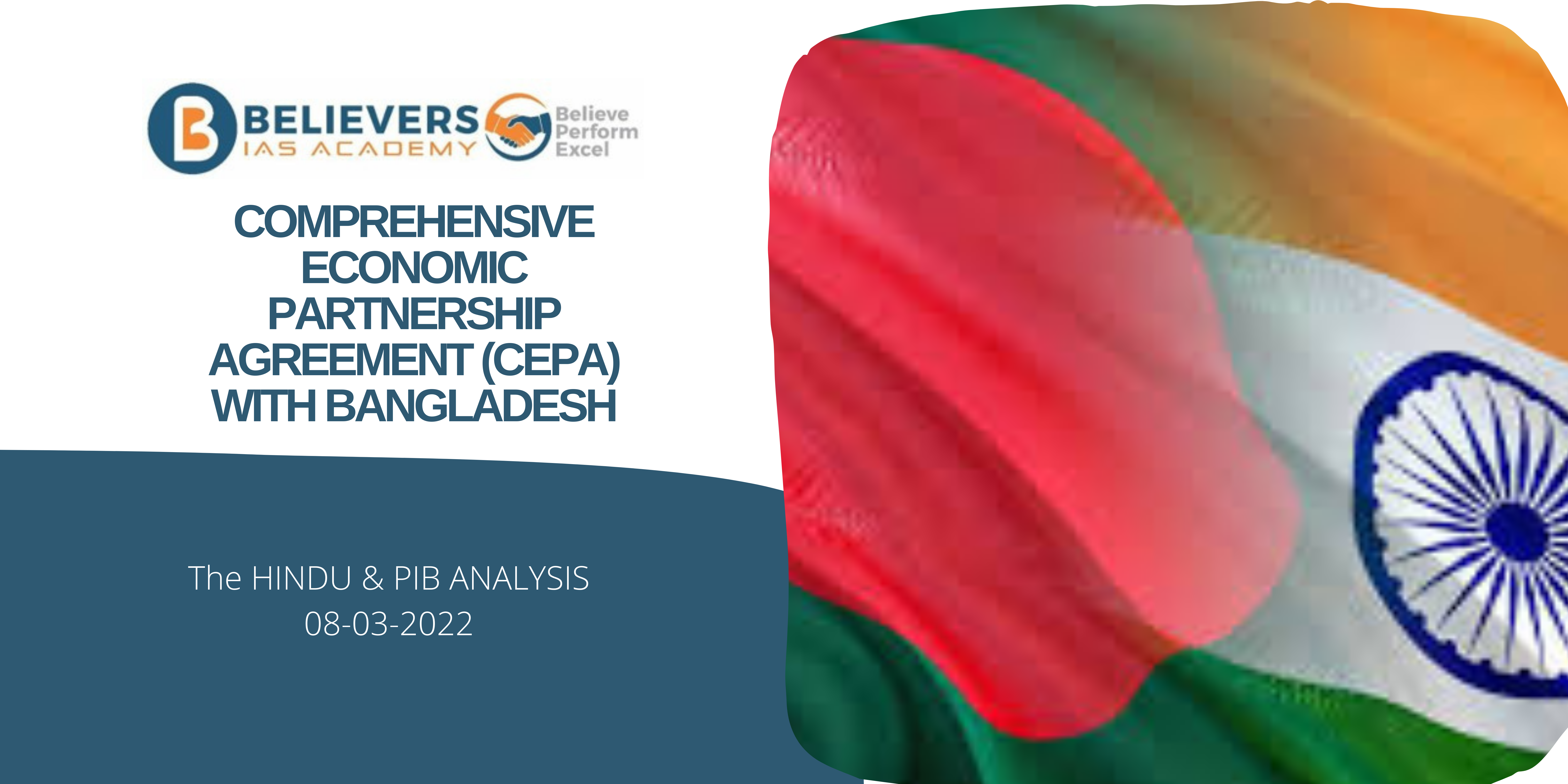An economic corridor, the Israel link and the geopolitics.
Context:
India set a precedent in G20 history by inviting the most Middle Eastern countries ever to take part as guests in the group’s key summit’.
Relevance:
GS-02 (Groupings & Agreements Involving India and/or Affecting India’s Interests)
Prelims:
African Union, Financial Inclusion Document, World Bank, India – Middle East – Europe Economic Corridor, G20, The “India-Middle East-Europe Economic Corridor.”
Mains Question:
Examine the key outcomes and implications of the 2023 G-20 summit held in India. (150 words)
Dimensions of the Article:
1. The Significance of the Delhi Declaration
2. The “India-Middle East-Europe Economic Corridor”
3. Israel’s Role and Diplomatic Considerations
4. Saudi Arabia’s Push for Peace
The Significance of the Delhi Declaration:
- The Delhi Declaration, despite the absence of China and Russia’s leaders, underscores India’s diplomatic success. While it avoids explicitly naming Russia for its actions in Ukraine, it aligns with United Nations charter principles regarding territorial sovereignty. This collective statement was carefully crafted to offer something favorable to each member, promoting unity.
The “India-Middle East-Europe Economic Corridor”:
- A surprising and bold announcement emerged from the summit—the “India-Middle East-Europe Economic Corridor.” This rail and shipping route, connecting India to Europe via the United Arab Emirates, Saudi Arabia, Jordan, and Israel, holds transformative potential.
- Beyond challenging China’s Belt and Road Initiative, it has garnered praise from global leaders, including U.S. President Joe Biden. However, Israel’s absence from the statement and Saudi-Israel normalization are crucial factors to consider.
Israel’s Role and Diplomatic Considerations:
- Curiously, Israel, a strategic partner in the proposed economic corridor, was not officially invited to the G-20 summit, even though it plays a significant role in the corridor’s plans. This absence raises questions, given the strong friendship between Prime Ministers Modi and Netanyahu.
- Potential reasons may include diplomatic constraints, particularly regarding a potential meeting between Saudi Arabia’s Crown Prince and Mr. Netanyahu. The Biden administration’s preference for diplomatic events without Mr. Netanyahu due to domestic politics could also be a factor.
Saudi Arabia’s Push for Peace:
- Saudi Arabia’s willingness to end its diplomatic boycott of Israel signifies a historic shift in Middle Eastern dynamics. Such acceptance from a significant Muslim nation has the potential to influence other countries, including Pakistan, Indonesia, and Malaysia.
- Despite the complex Israel-Palestine issue, Saudi Arabia is actively involved in diplomatic efforts, collaborating with Egypt, Jordan, the Arab League, and the European Union to promote peace.
- The India-Middle East-Europe Economic Corridor hinges on developments in this regard.
Conclusion:
The 2023 G-20 summit in India yielded substantial achievements and geopolitical implications. The Delhi Declaration showcased diplomatic finesse, while the announcement of the economic corridor promises to reshape global geopolitics. Israel’s role, diplomatic intricacies, and Saudi Arabia’s pursuit of peace are critical factors influencing the corridor’s future. The potential for a transformative corridor awaits progress in regional normalization efforts.



